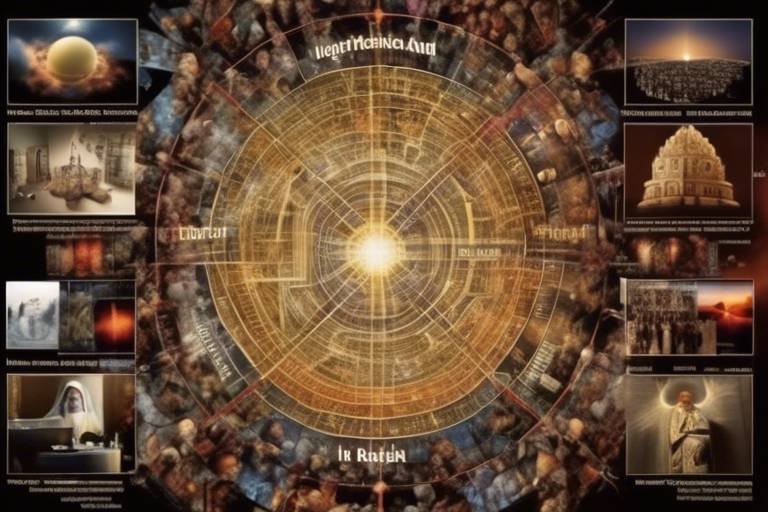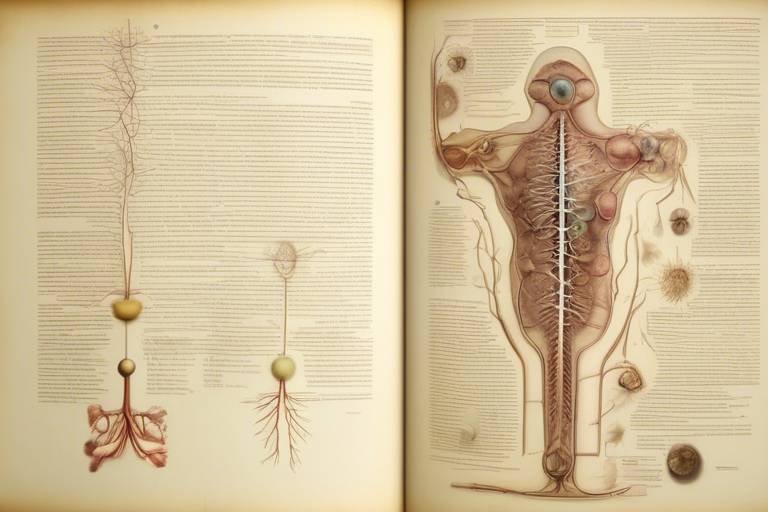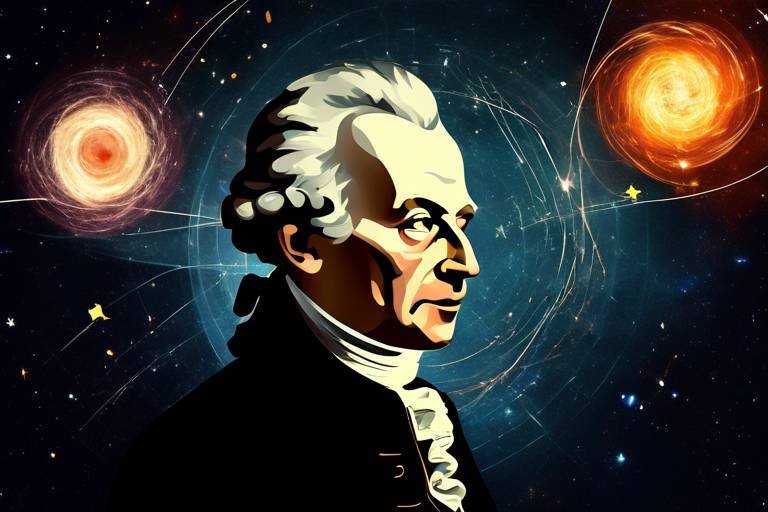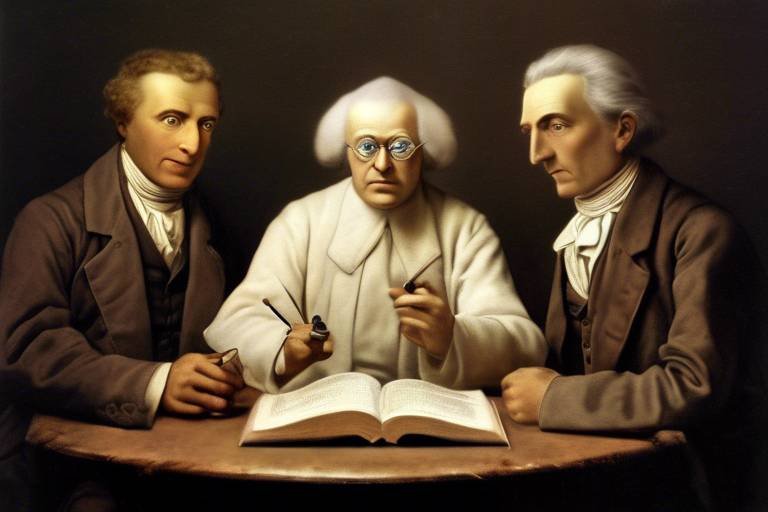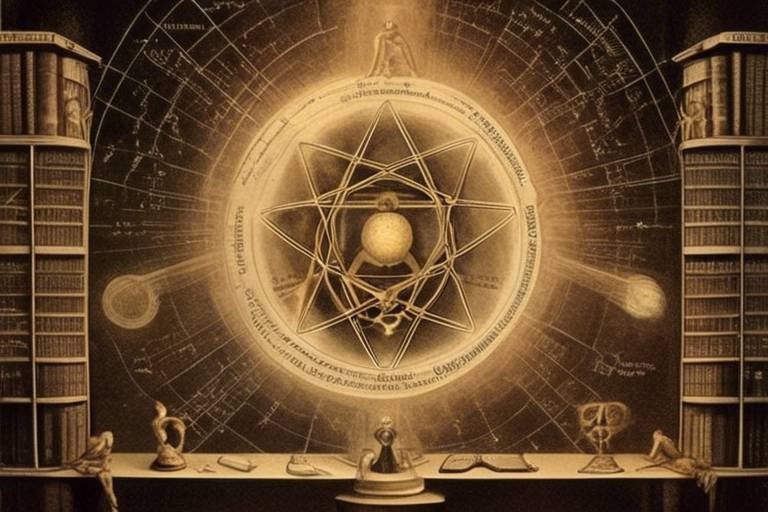The Role of the Observer - Does Observation Determine Reality?
Have you ever wondered if simply looking at something can change its behavior? This question strikes at the heart of a captivating debate in both philosophy and science. The act of observation isn’t just a passive activity; it may actually influence the very nature of reality itself. Imagine standing by a pond, watching the ripples created by a pebble you just tossed in. Your presence and actions have altered the water's surface. In a similar way, the observer effect in quantum mechanics suggests that the act of observing can change the phenomena being observed. But what does this mean for our understanding of the universe?
At its core, the inquiry into the role of the observer raises profound questions. Are we mere spectators in a grand cosmic play, or do we have an active role in shaping the script? This article delves into the philosophical and scientific implications of observation, exploring whether the act of observing influences reality and how it affects our comprehension of existence itself. Through this exploration, we will navigate the intricate landscape of classical and quantum physics, philosophical perspectives, and the impact of technology on our observational capabilities.
As we embark on this journey, we'll uncover layers of complexity that challenge our traditional views. From the peculiar behaviors of subatomic particles to the philosophical debates that question our very perception of reality, the role of the observer is anything but straightforward. So, buckle up as we dive deep into the fascinating interplay between observation and reality, and discover how our understanding of the universe may hinge on the very act of looking.
The observer effect refers to the changes that the act of observation can make on a phenomenon being observed, particularly in quantum mechanics, raising profound questions about the nature of reality. When we observe a particle, we may inadvertently change its state, leading to the conclusion that our mere act of watching can influence outcomes. This phenomenon challenges the deterministic view of classical physics, where objects exist independently of our observation. Instead, in the quantum realm, reality seems to be a dance between the observer and the observed, where each step taken by the observer alters the rhythm of existence.
In understanding the role of the observer, it's essential to distinguish between classical and quantum observation. In classical physics, the observer's influence is minimal, allowing for a more deterministic view of reality. Objects exist and behave according to fixed laws, regardless of whether or not they are being observed. This is akin to a well-rehearsed play where the actors perform their roles without regard for the audience. However, when we shift our focus to quantum mechanics, the narrative changes dramatically.
In quantum mechanics, the observer's role is crucial. Take, for example, the famous double-slit experiment. When particles, such as electrons, are fired at a barrier with two slits, they create an interference pattern that suggests they behave like waves. However, if we observe which slit the particles go through, they behave like particles, and the interference pattern disappears. This illustrates how observation can alter the behavior of particles, challenging our classical intuitions about matter.
Wave-particle duality exemplifies how particles can exhibit both wave-like and particle-like properties, depending on whether they are observed. It's as if these particles are playing a game of hide and seek, showing off their wave nature when unobserved, only to reveal their particle nature when we peek. This duality compels us to reconsider our definitions of reality, suggesting that what we perceive may be only a fraction of the truth.
The measurement problem in quantum mechanics raises questions about the nature of reality itself. It suggests that unobserved states may not exist in a definite way until measured. This notion is akin to Schrödinger's cat, a thought experiment where a cat in a box is simultaneously alive and dead until someone opens the box to observe it. This blurring of the lines between existence and non-existence is both perplexing and exhilarating, urging us to ponder the very fabric of reality.
In contrast, classical observations allow for a more straightforward understanding of reality. Here, objects exist independently of observation, and the laws of physics govern their behavior without interference from the observer. This perspective offers a sense of stability and predictability, much like a well-oiled machine that operates efficiently without the need for constant oversight. Yet, as we delve deeper into the complexities of observation, we begin to see the limitations of this classical viewpoint.
The philosophical implications of observation challenge our understanding of knowledge, reality, and existence. They prompt discussions on solipsism—the idea that only one's mind is sure to exist—and the nature of consciousness itself. Are we simply constructs of our perceptions, or do we have a more profound connection to the universe? This inquiry leads us to explore the thoughts of philosophers like Immanuel Kant, who posited that our perceptions shape our understanding of reality.
Kant's philosophy suggests that observation is integral to how we construct knowledge. Our experiences and perceptions filter our understanding of the world, shaping our beliefs and ideas. This perspective aligns with the idea that reality is subjective, colored by individual experiences and interpretations.
Epistemological debates center on how observation influences belief and knowledge, questioning the reliability of sensory experiences in determining what is real. Can we trust what we see, or is our perception merely a reflection of our biases and limitations? These questions invite us to reconsider the foundations of our knowledge and the methods we use to acquire it.
Advancements in technology have transformed our ability to observe, impacting scientific research and the interpretation of reality. From telescopes that allow us to gaze into the far reaches of the universe to microscopes that unveil the mysteries of the microscopic world, technology has opened new avenues for exploration. However, it also raises questions about objectivity and bias in our observations.
The use of instruments in observation can introduce biases, affecting the data collected and influencing our understanding of reality in various fields. For instance, the way we calibrate instruments or interpret data can skew our findings, leading us to conclusions that may not accurately reflect the true nature of the phenomena we study. This highlights the importance of critical thinking and skepticism in scientific inquiry.
Virtual reality technologies challenge traditional notions of observation, creating immersive experiences that blur the lines between reality and simulation. Imagine stepping into a virtual world where you can interact with digital environments as if they were real. This prompts new philosophical inquiries about the nature of perception and reality. Are we experiencing a new form of reality, or are we simply fooling our senses?
Ultimately, the interplay between the observer and reality remains a profound topic, inviting ongoing exploration into how our perceptions shape the universe we inhabit. As we continue to grapple with these concepts, we find that the act of observation is not merely a passive endeavor; it is an active engagement with the fabric of existence itself. Whether we are observing particles in a lab or contemplating our place in the cosmos, the observer's role is pivotal in shaping our understanding of reality.
- What is the observer effect? The observer effect refers to the changes that occur in a phenomenon due to the act of observation, particularly noted in quantum mechanics.
- How does observation differ in classical and quantum physics? In classical physics, observation has minimal influence, while in quantum physics, the act of observation can significantly alter the behavior of particles.
- What is wave-particle duality? Wave-particle duality is the concept that particles, such as electrons, can exhibit both wave-like and particle-like properties depending on whether they are observed.
- What are the philosophical implications of observation? Philosophically, observation challenges our understanding of reality, knowledge, and existence, prompting discussions on solipsism and the nature of consciousness.
- How does technology impact observation? Advancements in technology enhance our observational capabilities but can also introduce biases, affecting the interpretation of data.

The Observer Effect
The observer effect is a fascinating concept that delves deep into the relationship between observation and reality. At its core, this phenomenon suggests that the mere act of observing a phenomenon can alter its outcome. This idea is particularly prominent in the realm of quantum mechanics, where the behaviors of particles seem to be influenced by whether or not they are being observed. Imagine a butterfly flapping its wings; if no one is watching, it dances freely, but the moment an observer appears, the butterfly's flight path might change. This analogy highlights the profound implications of observation on the nature of reality.
In the quantum world, the observer effect raises profound questions about the very fabric of existence. For instance, when scientists conduct experiments, such as the well-known double-slit experiment, they discover that particles can behave as both waves and particles depending on whether they are being observed. This leads us to wonder: is reality a fixed entity, or is it a fluid concept shaped by our perceptions? The implications are staggering, suggesting that reality may not be as objective as we once believed.
To further illustrate the observer effect, consider the following points:
- Measurement Changes Outcomes: In quantum mechanics, measuring a particle's position can change its velocity, demonstrating that observation is not passive.
- Consciousness and Reality: Some theories propose that consciousness plays a role in collapsing quantum states, leading to the idea that our awareness can influence reality.
- Philosophical Implications: The observer effect challenges the notion of an independent reality, suggesting that our perceptions are integral to the existence of the universe.
As we continue to explore the observer effect, we must also consider how it shapes our understanding of science and philosophy. It invites us to question the reliability of our senses and the nature of knowledge itself. Are we merely passive spectators in a grand cosmic play, or do we actively participate in shaping the narrative of our universe? These questions are not just academic; they resonate with our daily experiences and challenge us to rethink our place in the cosmos.
In summary, the observer effect serves as a reminder that reality is not merely an objective backdrop to our lives but a dynamic interplay between the observer and the observed. As we peel back the layers of this complex relationship, we may find that the universe is far more intricate and interconnected than we ever imagined.

The distinction between classical and quantum observation is not just a matter of scientific terminology; it represents a fundamental shift in how we understand the universe. In classical physics, which governs the macroscopic world we experience daily, observation is largely passive. Here, objects exist independently of our observation. Think of it like watching a movie: the film plays out regardless of whether you’re in the theater or not. The laws of motion and gravity dictate the behavior of objects, and our role as observers doesn’t significantly alter their path or existence.
In stark contrast, quantum mechanics introduces a fascinating twist to this narrative. At the quantum level, particles behave in ways that defy classical intuition. The act of observation becomes an active participant in the behavior of particles. This phenomenon is beautifully illustrated by the double-slit experiment, where particles, such as electrons, can exhibit both wave-like and particle-like properties depending on whether they are being observed. When unobserved, these particles seem to exist in a state of probability, behaving like waves. However, the moment we attempt to measure or observe them, they 'decide' to behave like particles. This raises profound questions about the nature of reality itself: is it the act of observation that creates reality, or is there an underlying reality that exists independently?
To further illustrate the differences between classical and quantum observation, consider the following table:
| Aspect | Classical Observation | Quantum Observation |
|---|---|---|
| Nature of Reality | Objective and independent | Probabilistic and dependent on observation |
| Impact of Observer | Minimal impact | Significant impact |
| Examples | Newtonian mechanics, planetary motion | Double-slit experiment, quantum entanglement |
This table highlights the fundamental differences that challenge our classical understanding of physics. While classical physics allows us to predict the motion of a thrown ball with great accuracy, quantum mechanics reveals a world where certainty gives way to probability, and the observer plays a crucial role in determining outcomes. This brings us to the heart of the debate: if observation can alter the state of a particle, what does that mean for our understanding of reality itself?
As we delve deeper into this subject, we find ourselves asking questions that go beyond science. What does it mean for our perception of reality when we consider that our mere act of observing something can change its state? Are we, as observers, not just passive recipients of information but active participants in the unfolding of reality? These questions resonate with both scientists and philosophers, igniting discussions that bridge the gap between empirical evidence and metaphysical inquiry.
In the next section, we will explore the implications of these observations in quantum mechanics, focusing on concepts like wave-particle duality and the measurement problem, which further complicate our understanding of the universe.

The realm of quantum mechanics is nothing short of a mind-bending journey that challenges our fundamental understanding of the universe. At the heart of this exploration lies the observer effect, a phenomenon that suggests the mere act of observing can alter the state of a quantum system. This idea is famously illustrated through experiments such as the double-slit experiment, where particles like electrons demonstrate behaviors that defy classical logic. When not observed, these particles behave like waves, creating interference patterns that suggest they are in multiple states at once. However, once we introduce observation, they 'choose' a state, collapsing into a single particle-like behavior. Isn't it fascinating how our very act of looking can shape reality?
But what does this mean for our understanding of the universe? The implications are profound. The observer effect indicates that reality is not as fixed as we once believed. Instead, it suggests a universe that is responsive to the act of observation, raising questions about the nature of existence itself. Are we simply passive observers in a deterministic world, or do our perceptions actively participate in the creation of reality? This inquiry leads us to the wave-particle duality, a cornerstone of quantum mechanics that illustrates how particles can embody both wave-like and particle-like properties depending on whether they are observed. This duality challenges our classical intuitions and invites us to reconsider the very fabric of what we deem 'real.'
Moreover, the measurement problem extends these discussions further. It posits that unobserved quantum states may not exist in a definite way until they are measured. This raises a tantalizing question: does reality exist independently of our observation, or is it contingent upon our engagement with it? The measurement problem suggests that the act of observation is not merely a passive reception of information but an active engagement that influences the very state of the universe.
In essence, the impacts of observation on quantum mechanics not only reshape our scientific paradigms but also challenge our philosophical interpretations of reality. As we delve deeper into this quantum world, we find ourselves at the intersection of science and philosophy, where the observer's role becomes a pivotal element in understanding the universe. So, the next time you ponder the nature of reality, remember that in the quantum realm, your gaze might just be altering the very fabric of existence.
- What is the observer effect in quantum mechanics? The observer effect refers to the changes that occur in a quantum system when it is observed, indicating that the act of observation can influence the state of the system.
- How does the double-slit experiment demonstrate the observer effect? In the double-slit experiment, particles behave like waves when unobserved, creating interference patterns. However, when observed, they behave like particles, collapsing into a single state.
- What is wave-particle duality? Wave-particle duality is the concept that particles, such as electrons, exhibit both wave-like and particle-like properties depending on whether they are being observed.
- What is the measurement problem? The measurement problem questions whether unobserved quantum states exist in a definite way, suggesting they may only take on a specific state upon measurement.
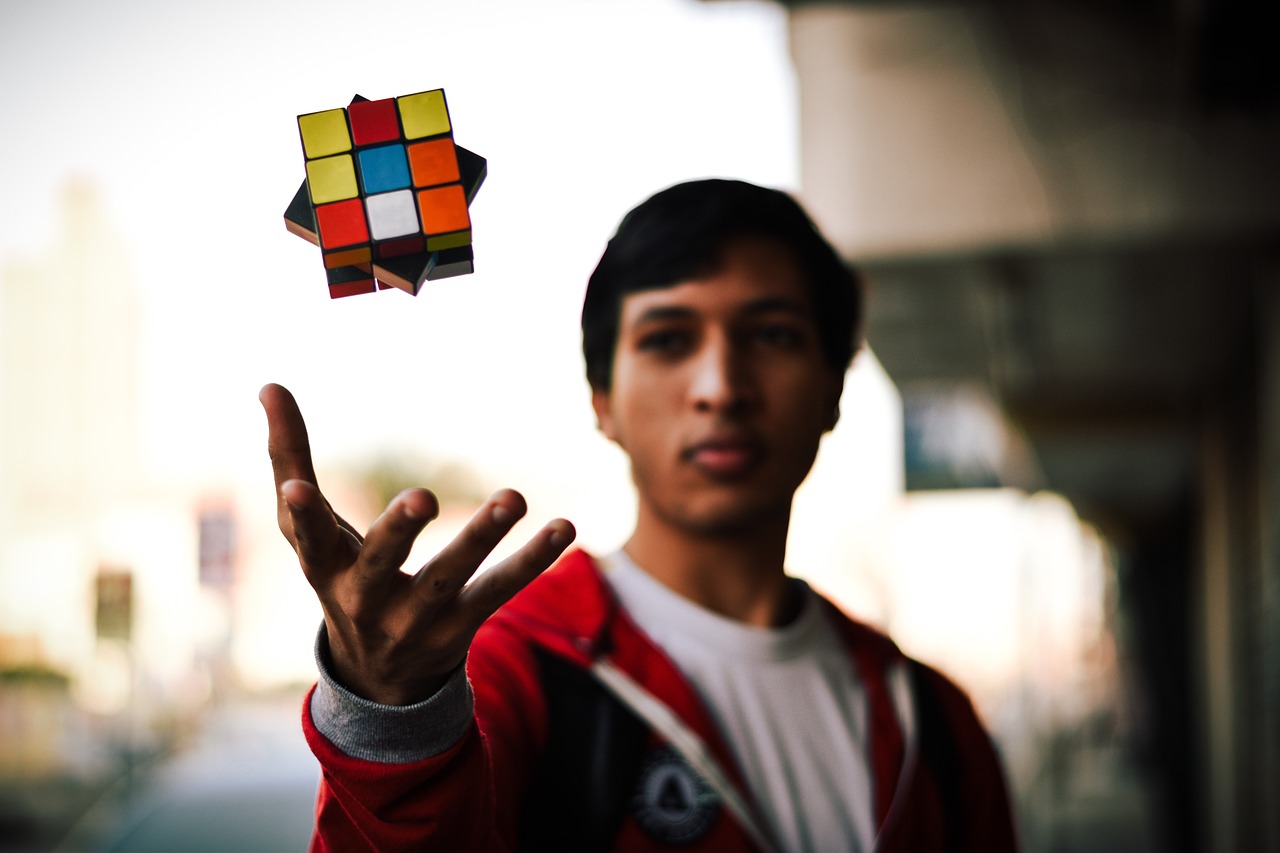
The concept of wave-particle duality is one of the most fascinating aspects of quantum mechanics, fundamentally challenging our classical understanding of the universe. Imagine a world where particles, the tiniest building blocks of matter, can behave like waves, and waves can manifest as particles. This duality is not just a theoretical concept; it’s a reality that has been confirmed through numerous experiments, most famously through the double-slit experiment. In this experiment, when particles such as electrons are fired at a barrier with two slits, they create an interference pattern akin to waves when not observed. However, the moment we attempt to measure which slit a particle passes through, it behaves like a particle, and the interference pattern vanishes. This phenomenon raises profound questions about the nature of reality itself: is the act of observing what causes particles to 'choose' their behavior?
To better understand wave-particle duality, let’s break down its implications:
- Observation Matters: The behavior of particles is not fixed but rather influenced by observation. This suggests that reality might not be as objective as we once thought.
- Complementarity Principle: Proposed by Niels Bohr, this principle states that objects can exhibit particle-like or wave-like properties depending on the experimental setup, emphasizing the importance of context in understanding quantum phenomena.
- Philosophical Ramifications: Wave-particle duality challenges our perceptions of reality and existence, inviting debates about the nature of consciousness and the universe.
In essence, wave-particle duality serves as a reminder that our understanding of the universe is still evolving. Just as light can be both a particle and a wave, perhaps our perceptions of reality are similarly flexible, shaped by our observations and experiences. This duality invites us to question not just the nature of particles and waves, but also the very fabric of reality itself. Are we merely observers in a universe that changes based on our gaze? This tantalizing question continues to fuel scientific inquiry and philosophical debate, calling into question the limits of human understanding.
- What is wave-particle duality? - Wave-particle duality refers to the phenomenon where particles, such as electrons and photons, exhibit both wave-like and particle-like properties depending on how they are observed.
- How does the double-slit experiment illustrate this concept? - In the double-slit experiment, particles create an interference pattern when not observed, indicating wave behavior. When observed, they behave like particles, demonstrating the impact of observation on their behavior.
- What are the implications of wave-particle duality for our understanding of reality? - This concept challenges the classical notion of an objective reality, suggesting that our observations may play a crucial role in shaping the universe we perceive.

The measurement problem in quantum mechanics is one of the most perplexing and fascinating challenges in understanding the nature of reality. At its core, this problem questions how and when quantum systems transition from a state of superposition—where they can exist in multiple states simultaneously—to a definite state that we can observe and measure. Imagine a coin spinning in the air; it's not just heads or tails but a blend of both until it lands. This analogy captures the essence of quantum superposition. However, the moment we observe the coin, it becomes either heads or tails, and this transition raises profound questions about the role of the observer.
To grasp the measurement problem, consider the famous thought experiment known as Schrodinger's Cat. In this scenario, a cat is placed in a sealed box with a radioactive atom, a Geiger counter, and a vial of poison. If the atom decays, the Geiger counter triggers the release of the poison, killing the cat. Until we open the box, the cat is considered both alive and dead—existing in a superposition of states. This paradox highlights the strange reality of quantum mechanics, where particles exist in probabilities rather than certainties until observed.
The implications of the measurement problem extend beyond theoretical physics and invite philosophical inquiries about the nature of reality itself. Questions arise such as:
- Does reality exist independently of observation?
- What role does consciousness play in determining the state of a quantum system?
- Are there hidden variables that we have yet to uncover that could explain these phenomena?
Many interpretations of quantum mechanics attempt to address the measurement problem, each offering a unique perspective:
| Interpretation | Description |
|---|---|
| Copenhagen Interpretation | Proposes that quantum particles do not have definite properties until measured. |
| Many-Worlds Interpretation | Suggests that all possible outcomes of a measurement actually occur in separate, non-communicating branches of the universe. |
| Objective Collapse Theories | Argues that wave function collapse is a physical process that occurs independently of observation. |
Each interpretation attempts to reconcile the bizarre nature of quantum mechanics with our everyday experiences. Despite the ongoing debates, one thing is clear: the measurement problem challenges our fundamental understanding of reality. It invites us to reconsider what we deem as real and how our observations shape the universe around us. As we delve deeper into the quantum realm, we may find that the act of measuring is not just a passive observation but a crucial element that defines the very fabric of reality itself.
- What is the measurement problem in quantum mechanics? The measurement problem refers to the dilemma of how quantum systems transition from superposition to definite states upon observation.
- How does Schrodinger's Cat illustrate the measurement problem? It exemplifies the paradox of a system existing in multiple states until observed, raising questions about reality and observation.
- What are some interpretations of quantum mechanics? Key interpretations include the Copenhagen interpretation, Many-Worlds interpretation, and objective collapse theories.

In the realm of classical physics, the dynamics of observation take on a distinctly different character compared to their quantum counterparts. Here, the act of observing is often seen as a passive process, where the observer merely measures or records phenomena without significantly altering them. This perspective allows for a more deterministic view of reality, where objects exist independently of whether they are being observed. Think of it like watching a movie: the film plays out the same way regardless of whether you're in the theater or not. This notion of reality as an objective construct is comforting and straightforward, yet it raises intriguing questions about the nature of existence itself.
Classical observations rely heavily on the principles laid down by Newtonian physics, where objects behave according to predictable laws. For example, if you drop a ball, you can confidently predict that it will fall to the ground due to the force of gravity acting upon it. This predictability fosters a sense of control and understanding, which is a hallmark of classical science. However, as we delve deeper into the implications of observation, we find that even in this seemingly straightforward framework, the observer's perspective can subtly influence outcomes.
Consider the role of measurement in classical experiments. When scientists measure a phenomenon, they use instruments that can introduce a degree of error or bias. For instance, an observer might record the temperature of a liquid, but the method of measurement—whether it's a digital thermometer or a mercury one—can yield slightly different results. This introduces a layer of complexity, suggesting that while classical observations aim for objectivity, they are not entirely free from the observer's influence.
Moreover, in classical physics, the concept of absolute space and time further complicates our understanding. Objects and events are thought to exist in a fixed framework, independent of observation. This leads to a philosophical stance where reality is seen as a tangible entity that can be understood through empirical evidence. However, this raises the question: is reality truly independent of our perceptions? Can we ever fully detach ourselves from the act of observing?
As we explore the implications of classical observations, it becomes evident that while they offer a more stable framework for understanding the universe, they also invite us to consider the limitations of our perceptions. The interplay between the observer and the observed, though minimal in classical contexts, still holds significance. It challenges us to rethink our assumptions about reality and the extent to which our observations can be deemed objective.
- What is the observer effect? The observer effect refers to changes that occur in a phenomenon being observed, particularly in quantum mechanics, where the act of observation can influence the behavior of particles.
- How does classical observation differ from quantum observation? In classical observation, the influence of the observer is minimal, allowing for a deterministic view of reality, whereas in quantum observation, the observer plays a crucial role in determining outcomes.
- What are the philosophical implications of observation? The act of observing raises questions about the nature of knowledge and reality, challenging us to consider how our perceptions shape our understanding of existence.
- Can technology influence our observations? Yes, advancements in technology can introduce biases and affect the data collected, impacting our interpretation of reality.

When we delve into the philosophical implications of observation, we find ourselves standing at the crossroads of knowledge, reality, and existence. It's like peering into a vast ocean of thought, where each wave represents a different perspective on how observation shapes our understanding of the universe. The very act of observing seems to influence not just what we see, but how we interpret and interact with reality itself. This leads us to ponder: if our observations can alter what we perceive, are we merely passive witnesses, or do we play an active role in constructing reality?
One of the most intriguing philosophical discussions centers around the concept of solipsism, the idea that only one's own mind is sure to exist. If observation is indeed a determinant of reality, then how can we be certain of the existence of anything outside our own perceptions? This notion challenges our understanding of consciousness and raises questions about the nature of existence itself. It’s as if we’re all living in our own little bubbles, each shaped by our individual experiences and observations, yet striving to connect with others who inhabit their own worlds.
Moreover, the Kantian perspective adds another layer to this discussion. According to Immanuel Kant, our perceptions significantly shape our understanding of reality. He proposed that we do not perceive the world as it is but rather as it appears to us, filtered through our senses and cognitive frameworks. This raises an important question: are we truly capable of knowing reality, or are we forever confined to our subjective interpretations? Kant's ideas suggest that observation is not just a passive act but rather a crucial component in the construction of knowledge.
As we navigate these philosophical waters, we must also consider the epistemological debates that arise from our discussions on observation. How reliable are our sensory experiences in determining what is real? This question is particularly relevant in an age dominated by technology and media, where what we observe can be manipulated or distorted. The reliability of our observations becomes a topic of contention, leading us to question the very foundations of our beliefs and knowledge. Are we, perhaps, living in a world where the line between reality and illusion is increasingly blurred?
In summary, the philosophical implications of observation are profound and multifaceted. They challenge us to rethink our understanding of reality, knowledge, and existence. As we continue to explore these ideas, we must remain open to the possibility that our observations not only reflect the universe but also shape it in ways we are just beginning to comprehend.
- What is the observer effect? The observer effect refers to changes that occur in a phenomenon being observed, particularly in quantum mechanics, where the act of observation can alter the state of a particle.
- How does observation influence reality? Observation can influence reality by shaping our perceptions and interpretations, leading to the idea that reality is not a fixed entity but rather a construct influenced by our experiences.
- What is solipsism? Solipsism is the philosophical idea that only one’s own mind is sure to exist, raising questions about the existence of an external reality independent of our perceptions.
- How does Kant's philosophy relate to observation? Kant posited that our perceptions shape our understanding of reality, suggesting that observation is integral to knowledge construction.

Immanuel Kant, a towering figure in Western philosophy, presents a fascinating lens through which we can examine the relationship between observation and reality. According to Kant, our understanding of the world is not merely a passive reception of sensory data; instead, it is actively shaped by our cognitive faculties. He argues that the mind plays a crucial role in organizing and interpreting experiences, suggesting that what we perceive is not the world as it is, but rather the world as our mind constructs it. This idea leads us to ponder: is our reality merely a reflection of our perceptions?
Kant introduces the concept of 'transcendental idealism,' which posits that while we can know phenomena (the world as we experience it), the noumena (the world as it exists independently of our perceptions) remain fundamentally unknowable. This creates a compelling distinction: our observations are filtered through our senses and cognitive structures, which means that reality, as we know it, is intrinsically tied to our observational capabilities. In essence, Kant suggests that observation is not just a window to reality; it is the very framework through which we construct our understanding of it.
To further illustrate Kant's perspectives, consider the following aspects:
- Categories of Understanding: Kant argues that our mind applies certain innate categories—such as causality, unity, and plurality—to make sense of sensory data. This means that every observation is colored by these categories, fundamentally shaping our perception of reality.
- Space and Time: For Kant, space and time are not external realities but rather the forms through which we perceive the world. This raises the question: do objects exist independently of our perception of them in space and time?
- Limits of Knowledge: Kant emphasizes that while we can gain knowledge through observation, there are limits to what we can know. The 'thing-in-itself' remains elusive, suggesting that our observations, no matter how rigorous, can never fully capture the essence of reality.
These insights prompt us to reflect on the implications of observation in our day-to-day lives. When we consider the ways our personal biases and experiences shape our views, it becomes clear that observation is not a straightforward process. Instead, it is a complex interplay of perception, cognition, and the external world. Kant's philosophy challenges us to recognize the subjective nature of our experiences and invites us to question the very foundation of our beliefs about what is real.
In conclusion, Kantian perspectives offer a profound understanding of how observation influences our conception of reality. They encourage an exploration of the boundaries of knowledge and the intricate relationship between the observer and the observed. As we navigate our lives, it is essential to remain aware of the ways our perceptions shape our understanding, prompting us to seek a deeper truth that transcends our immediate experiences.
- What is the observer effect? The observer effect refers to the changes that occur in a phenomenon when it is observed, particularly significant in quantum mechanics.
- How does Kant’s philosophy relate to modern science? Kant’s ideas about perception and knowledge continue to influence discussions in epistemology and the philosophy of science, particularly regarding the limits of human understanding.
- Can we ever know the 'thing-in-itself'? According to Kant, the 'thing-in-itself' is fundamentally unknowable, as our understanding is always mediated through our perceptions.

When we dive into the epistemological debates surrounding observation, we're essentially grappling with the fundamental questions of knowledge and belief. How do we know what we know? Is our understanding of reality shaped solely by our perceptions, or is there an objective truth that exists independently of our observations? These inquiries are not just philosophical musings; they have real implications in how we interpret the world around us. For instance, consider the role of sensory experiences. Are they reliable indicators of reality, or do they merely provide a subjective lens through which we view the universe?
One of the central themes in these debates is the distinction between empirical knowledge—knowledge gained through observation—and a priori knowledge, which is independent of experience. The tension between these two forms of knowledge raises significant questions. For example, can we truly claim to know something if our understanding is filtered through the subjective experiences of our senses? This becomes particularly relevant in the context of scientific research, where observations often serve as the foundation for theories and conclusions.
Moreover, epistemologists often explore the concept of confirmation bias. This is where our pre-existing beliefs influence how we interpret new information. Imagine a scientist who has a strong hypothesis; they may unintentionally focus on data that supports their theory while dismissing contradictory evidence. This bias can skew our understanding of reality, making it crucial to question the objectivity of our observations. To illustrate this point, consider the following table that outlines some common biases in observation:
| Type of Bias | Description |
|---|---|
| Confirmation Bias | The tendency to search for, interpret, and remember information that confirms one's preconceptions. |
| Observer Effect | The alteration of a phenomenon by the act of observation itself, particularly in quantum mechanics. |
| Selection Bias | A distortion that arises when the sample collected is not representative of the population intended to be analyzed. |
As we navigate these debates, we find ourselves questioning the very nature of reality. Are our observations merely reflections of our subjective experiences, or do they reveal something more profound about the universe? This leads us to consider the implications of solipsism—the philosophical idea that only one's mind is sure to exist. If we cannot trust our senses, can we ever be certain of anything beyond our own consciousness? This is a challenging thought that invites us to rethink how we engage with the world.
In conclusion, the epistemological debates surrounding observation are not just academic; they are deeply intertwined with our everyday experiences. They challenge us to scrutinize our beliefs and the ways we acquire knowledge. As we continue to explore these questions, we must remain open to the idea that our understanding of reality may be more complex and nuanced than we initially thought. The interplay between observation and knowledge not only shapes our scientific inquiries but also influences our personal beliefs and worldviews.
- What is the observer effect? The observer effect refers to changes that the act of observation can make on a phenomenon being observed, particularly in quantum mechanics.
- How does confirmation bias influence scientific research? Confirmation bias can lead researchers to favor data that supports their hypotheses while ignoring evidence that contradicts it, potentially distorting their conclusions.
- What is solipsism? Solipsism is the philosophical idea that only one's mind is sure to exist, raising questions about the nature of reality and knowledge.

In today's fast-paced world, technology plays an indispensable role in how we observe and interpret our surroundings. From the most basic tools like telescopes and microscopes to advanced instruments like particle accelerators and satellite imagery, our ability to observe has been transformed dramatically. This transformation has not only enhanced our understanding of the universe but has also raised critical questions about the objectivity and reliability of our observations. With every leap in technology, we find ourselves grappling with new challenges and opportunities that redefine what it means to observe.
One of the most significant advancements has been in the realm of digital technology. Cameras, sensors, and data analysis software have made it possible to capture and analyze phenomena that were once beyond our reach. For instance, in the field of astronomy, telescopes equipped with digital sensors can now detect distant galaxies and celestial events, allowing scientists to gather data that was previously unattainable. This has led to groundbreaking discoveries, such as the detection of gravitational waves and the imaging of black holes, which have fundamentally altered our understanding of the cosmos.
However, as we embrace these technological advancements, we must also consider the potential for bias in our observations. The tools we use can shape the data we collect and influence the conclusions we draw. For example, the resolution of an imaging device can determine what details we notice and which we miss entirely. This raises an important question: Are we observing reality as it truly is, or are we merely seeing a filtered version of it through the lens of our technology?
Moreover, the rise of virtual reality (VR) and augmented reality (AR) technologies has further complicated our understanding of observation. These technologies create immersive experiences that can simulate real-world environments, blurring the lines between what is real and what is constructed. Imagine putting on a VR headset and stepping into a world that feels just as real as the one outside your window. This phenomenon invites us to rethink our definitions of observation and reality, as we now have the ability to create and manipulate experiences that challenge our perceptions.
In scientific research, the use of advanced instrumentation can also introduce a layer of complexity. Instruments often come with their own set of limitations and assumptions, which can skew results. For instance, consider the following table that outlines some common instruments used in various fields of observation and their inherent biases:
| Instrument | Field | Potential Bias |
|---|---|---|
| Telescope | Astronomy | Limited wavelength sensitivity |
| Microscope | Biology | Sample preparation artifacts |
| Surveying Equipment | Geology | Human error in measurements |
| Data Analysis Software | Social Sciences | Algorithmic bias |
As we can see, each instrument comes with its own set of potential biases that can affect our understanding of reality. This realization prompts us to approach our observations with a critical eye, questioning the accuracy and integrity of the data we collect. The interplay between technology and observation is a dynamic one, constantly evolving as new tools are developed and old paradigms are challenged.
In conclusion, technology has revolutionized our capacity for observation, unlocking new frontiers in science and understanding. Yet, with these advancements come responsibilities and challenges. We must remain vigilant in recognizing the biases introduced by our tools and strive for a more nuanced understanding of reality. As we continue to explore the universe, we must ask ourselves: How do our observations, shaped by technology, influence the reality we perceive?
- How has technology changed the way we observe the universe? Technology has allowed us to capture data from previously unreachable distances and phenomena, leading to significant scientific discoveries.
- What are some biases introduced by observation tools? Each tool has limitations, such as resolution or sensitivity, which can affect the accuracy of the data collected.
- Can virtual reality alter our perception of reality? Yes, virtual reality can create immersive experiences that challenge our traditional understanding of what is real.

In the realm of scientific observation, the instruments we use play a pivotal role in shaping our understanding of reality. Imagine trying to view the stars with your naked eye versus using a powerful telescope; the differences in what you perceive are staggering. Instruments can enhance our ability to observe phenomena, but they also introduce a layer of complexity that can lead to bias. This bias can stem from various sources, including the limitations of the instruments themselves, the way data is interpreted, and even the expectations of the observer.
For instance, consider the impact of measurement tools in fields such as biology or physics. A microscope can reveal intricate details of a cell's structure that are invisible to the naked eye. However, the resolution and accuracy of that microscope can significantly influence what we conclude about the cell's function and behavior. If the microscope has a flaw, or if the observer is predisposed to see certain features, the results can be skewed. This phenomenon is not merely a theoretical concern; it has real implications for research outcomes and scientific advancements.
| Instrument Type | Potential Bias | Example |
|---|---|---|
| Telescope | Limited resolution may miss smaller celestial objects | Not detecting a distant planet due to instrument constraints |
| Microscope | Observer's expectations may influence interpretation | Seeing what one expects to see in a cell sample |
| Survey Tools | Question phrasing can lead to biased responses | Leading questions in public opinion polls |
Moreover, the context in which instruments are used can also introduce bias. For example, in social sciences, the way survey questions are framed can significantly affect the responses. If a question is worded in a leading manner, it may skew the results toward a particular viewpoint. This is why researchers must be meticulous in designing their studies, ensuring that the tools they employ do not inadvertently distort the data they gather.
As we delve deeper into the implications of instrumentation and bias, it’s essential to recognize that technology can both illuminate and obscure our understanding of reality. With the rise of advanced technologies, such as artificial intelligence and machine learning, we find ourselves at a crossroads. These tools can process vast amounts of data and reveal patterns that might go unnoticed by human observers. However, they also raise questions about the objectivity of the findings. Are we seeing the truth, or are we merely reflecting the biases encoded in the algorithms that drive these technologies?
Ultimately, as we navigate this intricate landscape of observation, it becomes clear that understanding the role of instrumentation and bias is crucial. It challenges us to remain vigilant and critical of the data we collect and the conclusions we draw. After all, in the quest for knowledge, the tools we use can either serve as our greatest allies or our most deceptive foes.
- What is the observer effect? The observer effect refers to changes that occur in a phenomenon being observed, particularly in quantum mechanics.
- How does instrumentation introduce bias? Instruments can have limitations or flaws that affect how data is collected and interpreted, leading to skewed results.
- What are some examples of bias in scientific research? Examples include leading questions in surveys, misinterpretation of data, and reliance on flawed instruments.
- Why is understanding bias important? Recognizing bias helps ensure the reliability of research findings and promotes a more accurate understanding of reality.
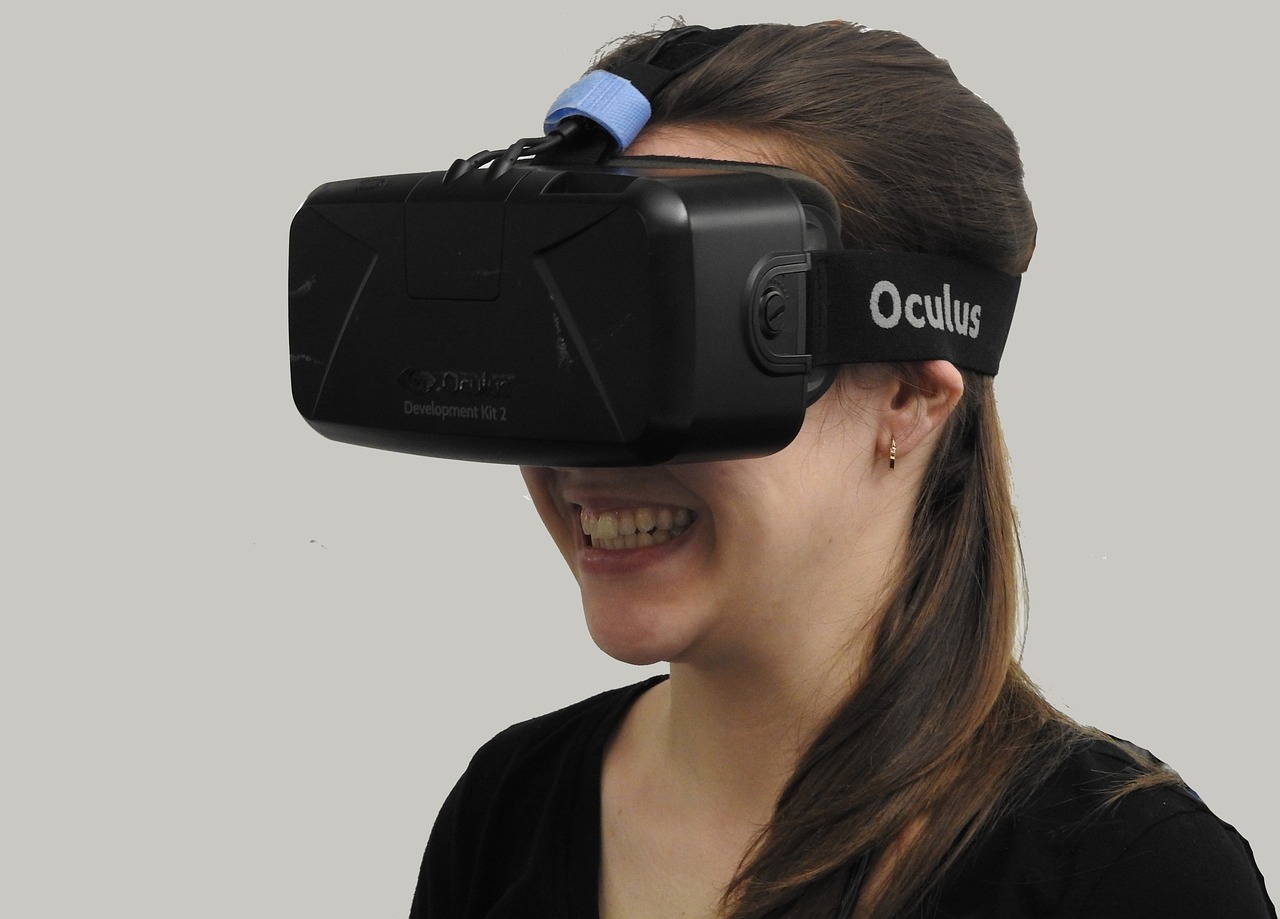
Virtual reality (VR) is not just a technological marvel; it’s a profound shift in how we perceive and interact with the world around us. Imagine stepping into a digital realm where the boundaries between the real and the virtual blur, creating experiences that feel incredibly tangible. This immersive technology challenges our traditional notions of observation and reality, raising fascinating questions about how we interpret our surroundings.
As we don our VR headsets, we enter a space where our senses are tricked into believing that we are somewhere else entirely. This phenomenon can be likened to a magician’s illusion, where our minds are captivated by the spectacle, often overlooking the mechanics behind it. In VR, our sensory inputs—sight, sound, and even touch—are manipulated to create an experience that feels real, even though we know, on some level, that it is not.
But what does this mean for our understanding of perception? When we engage with virtual environments, we are not merely passive observers; we become active participants. This shift in agency can alter our emotional responses and cognitive processes. For instance, a study might show that individuals can develop a sense of presence in a virtual world that is comparable to their feelings in the real world. This raises the question: if we can feel emotions and reactions in a virtual setting, does that experience hold any weight in our understanding of reality?
Moreover, VR technology has significant implications for various fields, including education, therapy, and entertainment. In educational settings, VR can transport students to historical events or complex scientific environments, making learning more engaging and impactful. In therapy, VR is being used to treat phobias and PTSD by allowing patients to confront their fears in a controlled and safe environment. This ability to manipulate perception opens up new avenues for understanding human behavior and cognition.
However, with great power comes great responsibility. The immersive nature of VR can lead to ethical concerns. For instance, how do we ensure that users can distinguish between virtual experiences and reality? Are there potential psychological effects from prolonged exposure to these digital environments? These questions highlight the importance of ongoing research and discussion surrounding the implications of virtual reality.
In summary, virtual reality is not just a tool for entertainment; it is a lens through which we can explore the nature of perception and reality itself. As we continue to innovate and create more immersive experiences, we must also consider the philosophical and ethical dimensions of our evolving relationship with technology. The interplay between our perceptions and the realities we construct will undoubtedly shape the future of human experience.
- What is virtual reality?
Virtual reality (VR) is a simulated experience that can be similar to or completely different from the real world, often involving the use of headsets and sensory equipment to create immersive environments.
- How does VR affect our perception of reality?
VR can alter our perception by providing sensory experiences that feel real, leading us to question what we consider to be the 'real' world.
- What are the applications of virtual reality?
VR is used in various fields such as education, therapy, entertainment, and training, offering unique ways to engage with content and experiences.
- Are there any risks associated with using VR?
Potential risks include disorientation, addiction, and difficulty distinguishing between virtual and real-life experiences, necessitating responsible use and further research.

In wrapping up our exploration of the intricate relationship between the observer and reality, it's clear that this topic is anything but straightforward. The very act of observation seems to dance on the edge of what we perceive as real, challenging our fundamental understanding of existence itself. Just as a painter chooses colors and strokes to create a masterpiece, we, as observers, wield the brush of perception that shapes our experience of the universe. This interplay suggests that reality is not merely a backdrop to our lives; rather, it is a dynamic canvas, influenced by our thoughts, beliefs, and observations.
Consider this: if a tree falls in a forest and no one is around to hear it, does it make a sound? This age-old question encapsulates the essence of our inquiry. It invites us to ponder whether reality exists independently of our perception or if it is contingent upon our awareness. In the realm of quantum mechanics, the observer effect hints that the mere act of observing can alter the state of a phenomenon, blurring the lines between objective reality and subjective experience.
Moreover, advancements in technology have further complicated the conversation. With tools that enable us to see the unseen, such as telescopes and particle accelerators, we find ourselves in a paradox. While these instruments enhance our observational capabilities, they also introduce new biases and interpretations into our understanding of reality. For instance, virtual reality technologies create immersive experiences that challenge our traditional notions of what is real, prompting us to question the very fabric of our perceptions.
Ultimately, the interplay between observer and reality is a profound and ongoing dialogue. It invites us to remain curious, to question our assumptions, and to embrace the complexity of existence. As we navigate this intricate web of observation and understanding, we must acknowledge that our perceptions play a pivotal role in shaping the universe we inhabit. The journey of exploration is far from over; in fact, it has only just begun.
- What is the observer effect? The observer effect refers to changes that occur in a phenomenon being observed, particularly in quantum mechanics, where the act of observation can influence the state of particles.
- How does observation differ in classical and quantum physics? In classical physics, observation has minimal influence on reality, allowing for a deterministic view. In contrast, quantum physics suggests that observation can alter the behavior of particles.
- What are the philosophical implications of observation? The philosophical implications challenge our understanding of knowledge and reality, prompting discussions on how our perceptions shape our understanding of existence.
- How does technology affect our observations? Advancements in technology can enhance our observational capabilities but may also introduce biases, affecting the interpretation of data and our understanding of reality.
Frequently Asked Questions
- What is the observer effect?
The observer effect refers to changes that occur in a phenomenon when it is observed. This is especially significant in quantum mechanics, where the act of measurement can alter the state of a particle, raising questions about the nature of reality itself.
- How does classical observation differ from quantum observation?
In classical physics, the observer has minimal influence on the objects being observed, allowing for a more deterministic view of reality. In contrast, quantum mechanics shows that observation can fundamentally change the behavior of particles, leading to a more complex understanding of existence.
- What is wave-particle duality?
Wave-particle duality is a concept in quantum mechanics where particles, like electrons, can exhibit both wave-like and particle-like properties depending on whether they are being observed. This challenges traditional notions of matter and forces us to rethink our understanding of reality.
- What is the measurement problem in quantum mechanics?
The measurement problem raises questions about how unobserved states exist. It suggests that these states may not have definite properties until they are measured, leading to debates about the nature of reality and existence.
- How do philosophical implications of observation affect our understanding of knowledge?
Philosophical implications challenge our understanding of knowledge, reality, and consciousness. They prompt discussions about how our perceptions shape our understanding of the world, suggesting that observation is integral to constructing knowledge.
- What role does technology play in observation?
Advancements in technology have significantly changed our ability to observe phenomena, impacting scientific research and interpretations of reality. However, these technologies can also introduce biases, raising questions about objectivity in our observations.
- How does virtual reality challenge traditional notions of observation?
Virtual reality blurs the lines between reality and simulation, creating immersive experiences that challenge how we perceive the world. This raises new philosophical inquiries about the nature of reality and our understanding of existence.
- What are epistemological debates regarding observation?
Epistemological debates focus on how observation influences belief and knowledge. They question the reliability of our sensory experiences in determining what is real, highlighting the complex relationship between observation and understanding.



